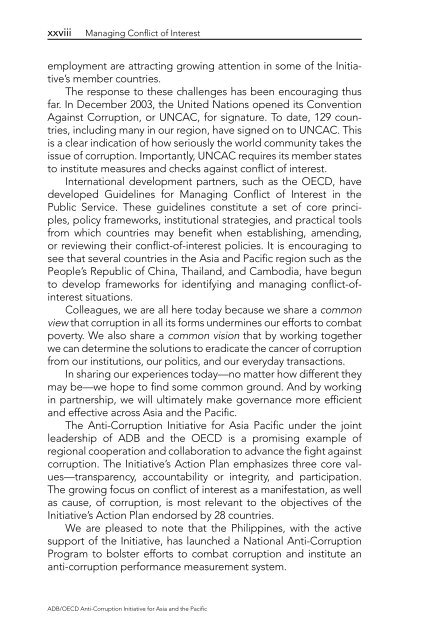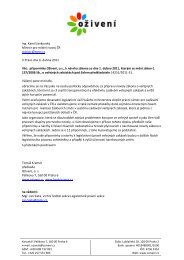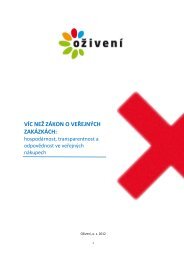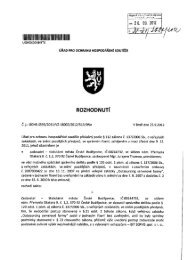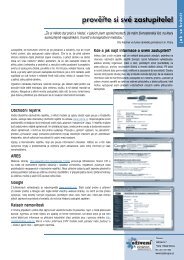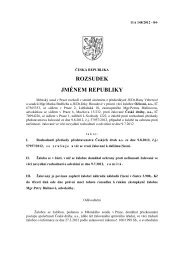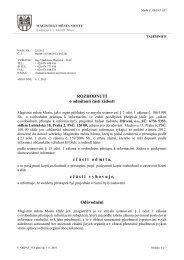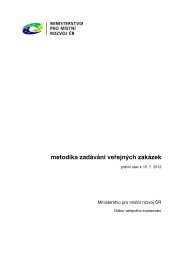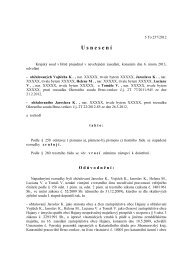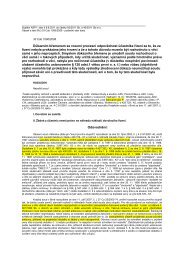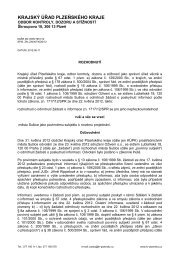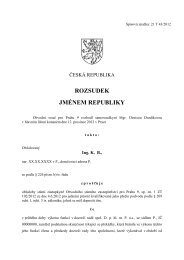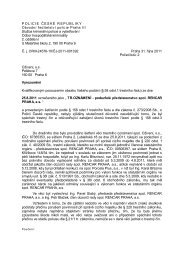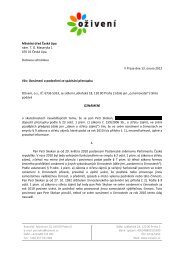Managing Conflict of Interest - Organisation for Economic Co ...
Managing Conflict of Interest - Organisation for Economic Co ...
Managing Conflict of Interest - Organisation for Economic Co ...
Create successful ePaper yourself
Turn your PDF publications into a flip-book with our unique Google optimized e-Paper software.
xxviii <strong>Managing</strong> <strong><strong>Co</strong>nflict</strong> <strong>of</strong> <strong>Interest</strong>employment are attracting growing attention in some <strong>of</strong> the Initiative’smember countries.The response to these challenges has been encouraging thusfar. In December 2003, the United Nations opened its <strong>Co</strong>nventionAgainst <strong>Co</strong>rruption, or UNCAC, <strong>for</strong> signature. To date, 129 countries,including many in our region, have signed on to UNCAC. Thisis a clear indication <strong>of</strong> how seriously the world community takes theissue <strong>of</strong> corruption. Importantly, UNCAC requires its member statesto institute measures and checks against conflict <strong>of</strong> interest.International development partners, such as the OECD, havedeveloped Guidelines <strong>for</strong> <strong>Managing</strong> <strong><strong>Co</strong>nflict</strong> <strong>of</strong> <strong>Interest</strong> in thePublic Service. These guidelines constitute a set <strong>of</strong> core principles,policy frameworks, institutional strategies, and practical toolsfrom which countries may benefit when establishing, amending,or reviewing their conflict-<strong>of</strong>-interest policies. It is encouraging tosee that several countries in the Asia and Pacific region such as thePeople’s Republic <strong>of</strong> China, Thailand, and Cambodia, have begunto develop frameworks <strong>for</strong> identifying and managing conflict-<strong>of</strong>interestsituations.<strong>Co</strong>lleagues, we are all here today because we share a commonview that corruption in all its <strong>for</strong>ms undermines our ef<strong>for</strong>ts to combatpoverty. We also share a common vision that by working togetherwe can determine the solutions to eradicate the cancer <strong>of</strong> corruptionfrom our institutions, our politics, and our everyday transactions.In sharing our experiences today—no matter how different theymay be—we hope to find some common ground. And by workingin partnership, we will ultimately make governance more efficientand effective across Asia and the Pacific.The Anti-<strong>Co</strong>rruption Initiative <strong>for</strong> Asia Pacific under the jointleadership <strong>of</strong> ADB and the OECD is a promising example <strong>of</strong>regional cooperation and collaboration to advance the fight againstcorruption. The Initiative’s Action Plan emphasizes three core values—transparency,accountability or integrity, and participation.The growing focus on conflict <strong>of</strong> interest as a manifestation, as wellas cause, <strong>of</strong> corruption, is most relevant to the objectives <strong>of</strong> theInitiative’s Action Plan endorsed by 28 countries.We are pleased to note that the Philippines, with the activesupport <strong>of</strong> the Initiative, has launched a National Anti-<strong>Co</strong>rruptionProgram to bolster ef<strong>for</strong>ts to combat corruption and institute ananti-corruption per<strong>for</strong>mance measurement system.ADB/OECD Anti-<strong>Co</strong>rruption Initiative <strong>for</strong> Asia and the Pacific


